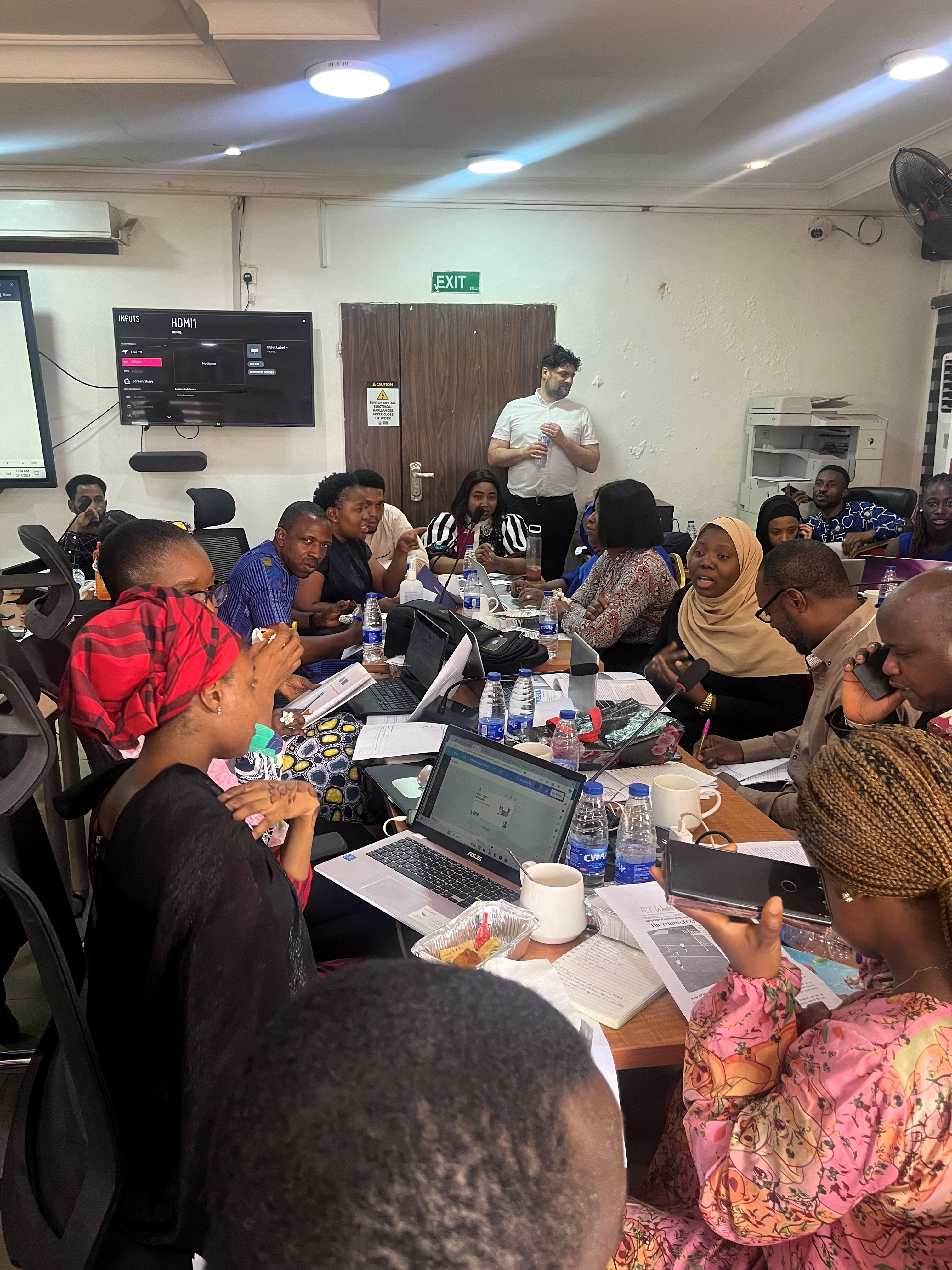
Exercise Keep Pushing (KP) is an annual simulation exercise that has been co-developed and co-delivered by the Nigerian Centre for Disease Control (NCDC) and the IHR Strengthening Project (IHR-SP) Emergency Planning Preparedness and Response (EPRR) team since 2018. The purpose of the KP series is to test command, control, coordination and communication between the national Public Health Emergency Operating Centre (PHEOC) and sub-national PHEOCs within Nigeria.
In February 2024, the IHR-SP EPRR team supported the fifth iteration of Exercise Keep Pushing (KP 5). KP 5 brought together veterinary and environmental scientists alongside One Health colleagues and emergency response specialists from the national headquarters and across six states to consider the NCDC response to a Rabies outbreak. A multi-sectoral exercise was selected for KP 5 following Nigeria’s Joint External Evaluation (JEE) in 2023, which highlighted that improved intra- and multisectoral and One Health coordination and collaboration is a key principle in improving Nigeria’s capability to prevent, detect and rapidly respond to public health incidents, particularly in the States.
The IHR-SP supported NCDC to deliver KP 5 by developing the aims and objectives, providing technical advice on injects, briefing exercise controllers who were deployed to the States as part of the exercise, and by being evaluators and observers on the day of the exercise. Additionally, IHR-SP shared knowledge and expertise within One HMG as we collaborated with our colleagues in the UK Animal and Plant Health Agency (APHA) to provide subject matter expertise to participants and NCDC exercise controllers. Over two days, the scientists and EPRR staff exercised the response to scientific data, logistical difficulties and media speculation. Participant feedback was overwhelmingly positive with multiple participants stating that the exercise has increased and or reinforced knowledge in how to respond to zoonotic infections using a One Health approach.
Building sustainability within Exercise Keep Pushing

This approach to training aligns with the systems strengthening and sustainability model that the UKHSA IHR project has developed. With each successive exercise, the NCDC Health Emergency Preparedness and Response team has increasingly designed and delivered more of the exercise programme, independently of IHR-SP. KP5 demonstrated NCDC EPRR staff’s enhanced ability to plan, write and facilitate an exercise; due in part to prior IHR-SP training and workshop events, particularly the Incident Management System and Simulation Exercise (SIMEX) training in November 2023. The SIMEX training in November provided participants with the fundamentals of preparedness exercising e.g. rationale, aims and objectives, exercise team, scenario and inject design, evaluation. KP5 was a fantastic follow-up to this course as it provided a great opportunity for NCDC staff to put theory into practice and apply newly acquired skills. Several facilitators remarked that the training was impactful and adequately prepared them for their role during the exercise.
Additionally, the exercise facilitated practical knowledge sharing within IHR-SP itself as the project’s Zambia EPRR Technical Adviser, Dr Dingase Mvula attended the exercise with a view to support the Zambian Public Health Institute in establishing a similar exercise programme in Zambia.
Welcoming senior leadership
Lastly, a highlight of KP 5 was the representation from senior leadership at NCDC and UKHSA. The former NCDC Director General, Dr Idefayo Adetifa made an opening address to all participants and facilitators and UKHSA CEO Professor Dame Jenny Harries whose visit to Nigeria coincided with the exercise was able to provide opening remarks. She expressed the importance of preparedness activities and restated UKHSA’s continued commitment to our partnership with NCDC. Members of the IHR Strengthening Project Senior Leadership Team, Anne Wilson and Kathleen Skinner were also in attendance as they accompanied Professor Dame Jenny. The high regard for the Keep Pushing Exercise series and the activities associated with the exercise programme demonstrates how valuable the programme is and its significant impact on the development of EPRR across Nigeria.
